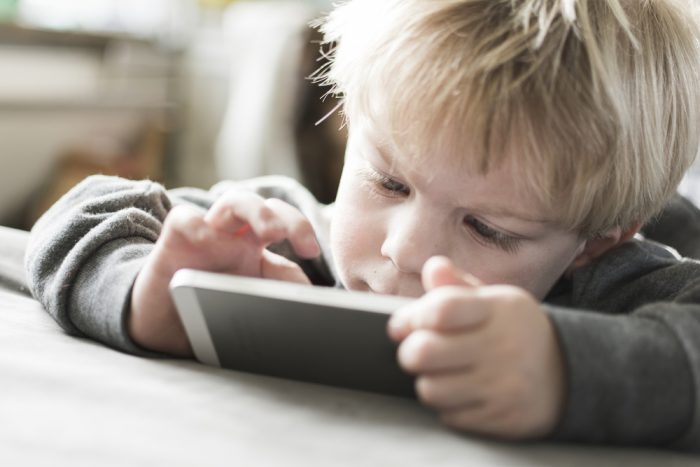I still remember the first time I felt the jolt from seeing what a computer could do. I was about nine or ten years old and my dad showed the MS-DOS text commands to make a “rocket ship” launch on the screen. Mind you, in the ‘80s this was cool stuff but any kid who saw it today would say, “Yeah, so?” We’ve certainly come a long way, baby.
Technology is now a constant. As an educator I’ve become increasingly aware of how pervasive technology has become for the youngest of children, particularly in the last year. While we could spend some time talking about what’s changed, what’s more intriguing is thinking about what technology does and does not do for young children.
In terms of context, what is suggested over and over again is that learning from technology is significantly enhanced when adults participate with a child to discuss, make real-world connections, and model appropriate use.
The Good. The most effective uses of technology with young children are generally active, hands-on and engaging. It is argued that technology is one of many ways to extend learning because it can offer new content, new skills and new ways for self-expression. What the research has unequivocally established is that both content and context make a significant difference in the quality of a child’s viewing experience. Bad content is still bad, but there’s lots of smart apps and other programs out there that are absolutely child-friendly. For starters, I highly recommend you check out commonsensemedia.org. In terms of context, what is suggested over and over again is that learning from technology is significantly enhanced when adults participate with a child to discuss, make real-world connections, and model appropriate use. Passive, non-interactive use of any technology is still very much frowned upon for young children.
Parents of infants take note, extremely limited exposure to technology that is always co-viewed together with your child and includes lots of communication and language is the baseline. Anything less than that is…well…less than ideal. If infants are distressed, they need the comfort of a caring adult, not an electronic device. Just so we’re all on the same page, infants, in particular, still thrive best with attentive, real-life interactions with people.
The Not So Good. As I dug into what the science is telling us about technology ‘n tikes I was really pretty surprised at the current thinking around the issue. What were once prohibition-like limitations on screen time for young children has shifted to what is now known as a healthy media diet.
A diet. I get it. A diet suggests balance, mindfulness, discipline, right? Anyone who knows me knows I love the phrase “prohibition never works” and I’d argue that the more you deny access to your child, the more they will crave it and cling to it when it’s in their grasp. So yes, I’m on board in theory.
But here’s the reality I observe around me. Technology is trendy, addictive, consuming. Not surprising, research indicates that excessive screen time is linked to problems like childhood obesity, sleep disturbance, and poor school performance including interfering with early language development. (Recall me mentioning something changing over the last year? Bingo. Early language isn’t looking the same these days and in my observations, I’m not so sure it’s for the better.) There is added concern that it hampers attention span and self-control. Is this just the tip of the iceberg? The jury is still out.
What’s more, as an early childhood educator I cringe especially at the use of technology as a discipline strategy. Case in point. Toddlers are, by nature, impulsive little creatures. Led down one road, toddlers learn to wait; patience along with a tolerance for frustration blossoms. Led down another where flashy electronic devices keep children from fussing, toddlers fall victim to the dark side of instant gratification and the chance to learn patience is out the window. Doesn’t seem like such a big deal? I’m here to tell you it is, folks.
As with all things parenting, it boils down to choices. Young children will use technology as much, as little, as appropriate or as inappropriate as we let them. In a New York Times interview, Steve Jobs was assumingly asked once, “So your kids must love the iPad?” The story goes that the then Apple CEO bluntly responded with, “They haven’t used it. We limit how much technology we use at home.” Now that is something to ponder.
-Kimberly Garley-Erb
